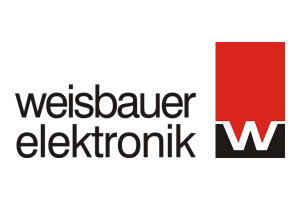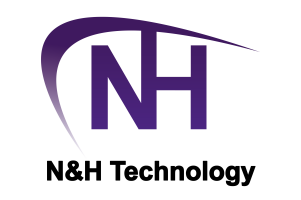Ambient Computing for Hospitals
Microsoft Dragon Copilot: AI Assistant to Relieve Clinics
Microsoft's Dragon Copilot is designed to alleviate staff shortages and the burden of documentation in hospitals - and will be available in the US from Mai. The AI system combines medical speech recognition with the DAX Copilot platform for automated tasks, documentation and smart research.
From speech recognition to a context-sensitive assistant - Dragon Copilot, presented by Microsoft just in time for HIMSS 2025 in Las Vegas, is the logical evolution of Dragon Medical One (DMO) speech recognition software, which has been used in hospitals for decades, and the current Copilot initiatives.
While the DMO originally developed by Nuance specialized in precise speech-to-text transcription, the integration of the DAX Copilot platform expands its capabilities to include ambient computing: the AI analyzes natural conversations between doctors and patients in real time, extracts relevant clinical data and automatically generates structured reports.
| »Instead of concentrating purely on documentation, clinicians can once again focus on interaction with patients. The AI doesn't just do the typing, it interprets the context.« |
|---|
| Joe Petro, Corporate Vice President Healthcare Microsoft |
What Microsoft's Clinical Copilot Can do
The new AI assistant works in a similar way to products already available in Germany and Europe from competitors such as Corti; the Danish provider's Copilot has been available in Germany since fall 2024 and has received very good feedback from clinics.
The »listening« product from Microsoft is designed to make everyday clinical work easier and offers a standardized user interface for »environment documentation«, »decision support« and »workflow automation«.
- Environmental documentation: During patient conversations, the AI not only transcribes speech, but also recognizes key diagnostic information, medication plans and treatment goals. Case-related notes, referral letters and epicrises are generated automatically - supported by multilingual functions and customizable templates.
- Clinical decision support: An embedded research assistant searches evidence-based sources such as "UpToDate" or "PubMed" and provides contextually relevant studies or guidelines without doctors having to leave the interface of the digital patient record.
- Workflow automation: Routine tasks such as laboratory requests, prescription issues or appointment tracking are initiated by voice command. According to Microsoft, one highlight is the "Conversational Orders" function, in which the AI derives precise work orders for nursing staff or specialist departments from free speech.
What Dragon AI Promises Doctors and Patients
Burnout prevention through reduced bureaucracy: Current Microsoft data shows that 70 percent of DAX Copilot users complain of less fatigue. Dragon AI could reinforce this effect: pilot studies document five minutes of time saved per patient contact - with 20 consultations a day, this adds up to over 16 working hours a month.
But there are also signs of improvement in patient orientation and treatment quality: 93 percent of patients in DAX pilot projects rate their interaction with AI-supported doctors more positively. The reason for this is the undivided attention of the doctors during the visit.
| »When the screen is not between the doctor and patient, a more trusting dynamic is created. The AI records in the background without interfering with the human component.« |
|---|
| Glen Kearns, Ottawa Hospital |
Implementation and Security Architecture
From May 2025, the »Dragon Copilot« will initially be launched in the USA and Canada, with the European markets (UK, Germany, France, Netherlands) planned for the second half of the year. In the USA, Microsoft is cooperating with EHR providers (Electronic Health Record) such as Epic and Cerner to ensure seamless integration. Migrated support is planned for existing DMO customers.
For the responsible use of AI and a high level of data security, the US software giant emphasizes that the Dragon Copilot architecture is based on Microsoft's "Responsible AI" principles. These include transparency, fairness and compliance and in practice mean that clinicians are given insight into the data sources of the AI recommendations. The algorithms were also trained with various language data sets in order to recognize dialects and accents equally. Isolated data processing within the Microsoft Cloud for Healthcare ensures HIPAA and GDPR compliance. The system also blocks unverifiable diagnostic suggestions.
|
Klinische LLMs: Wie sicher können KI-Agenten in der Medizin sein? |
|---|
| Lesen Sie passend dazu unser Interview mit Prof. Dr. Stephen Gilbert. |
Scaling, Certification and Wearables Interfaces
Although initially tailored to inpatient and outpatient care, Microsoft also sees application scenarios in nursing homes, rehabilitation facilities and telemedicine. The planned interface to wearables is interesting: vital data from smartwatches could automatically flow into AI documentation in the future.
Despite the ambitions, challenges such as regulatory and acceptance-related hurdles and ethical issues remain. In the EU, AI systems for clinical decision support must undergo MDR certification; it is currently unclear whether this process for the complex learning algorithms will be completed by the fall - on the other hand, Microsoft should invest sufficient effort and resources to complete the process quickly. In addition, there are already similar solutions on the market from competitors.
To support doctors in the transition from manual documentation to AI-supported processes, the company relies on training programs with certified partners. With regard to possible misinformation from the AI tool, Microsoft emphasizes that Dragon Copilot only assists and does not make autonomous decisions - in other words, a doctor or healthcare professional always has the final say.
AI as a Catalyst for More Humane Medicine?
With Dragon Copilot, AI is set to move into clinics and surgeries like Microsoft Office once did. The aim is not only to make organization and administration more efficient, but also to improve the doctor-patient relationship by spending more time and focusing on human contact. The decisive factor here will be whether the technology fulfills its promise of simultaneously reducing burnout rates and increasing the quality of treatment. With over 600 participating clinics in the test phase, the foundation of MS Dragon Copilot seems more solid than many other AI developments. The medical technology community will be watching the rollout closely from May 2025 - in particular the approval in Europe, interoperability with third-party systems and the long-term impact on clinical outcomes. (uh)





